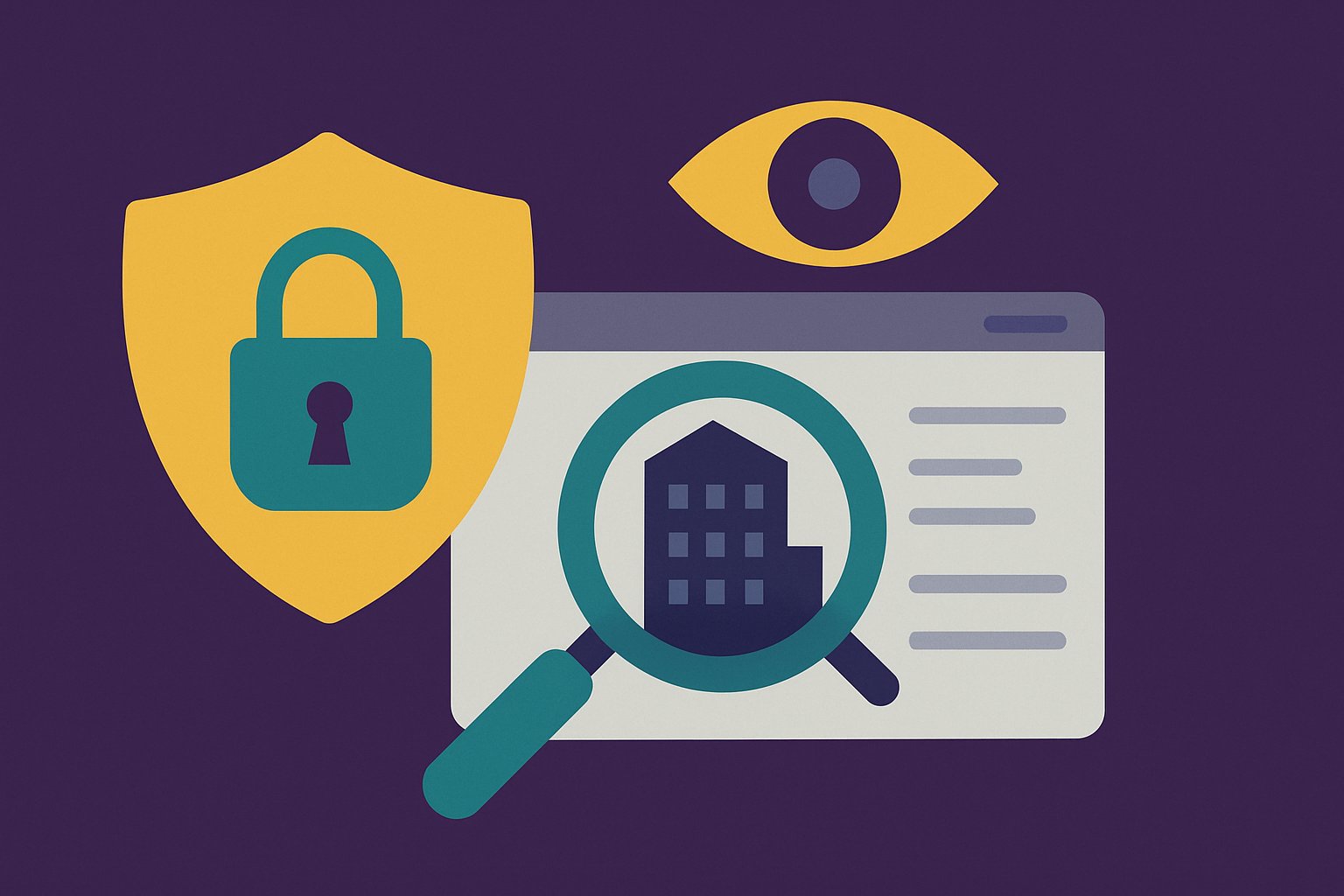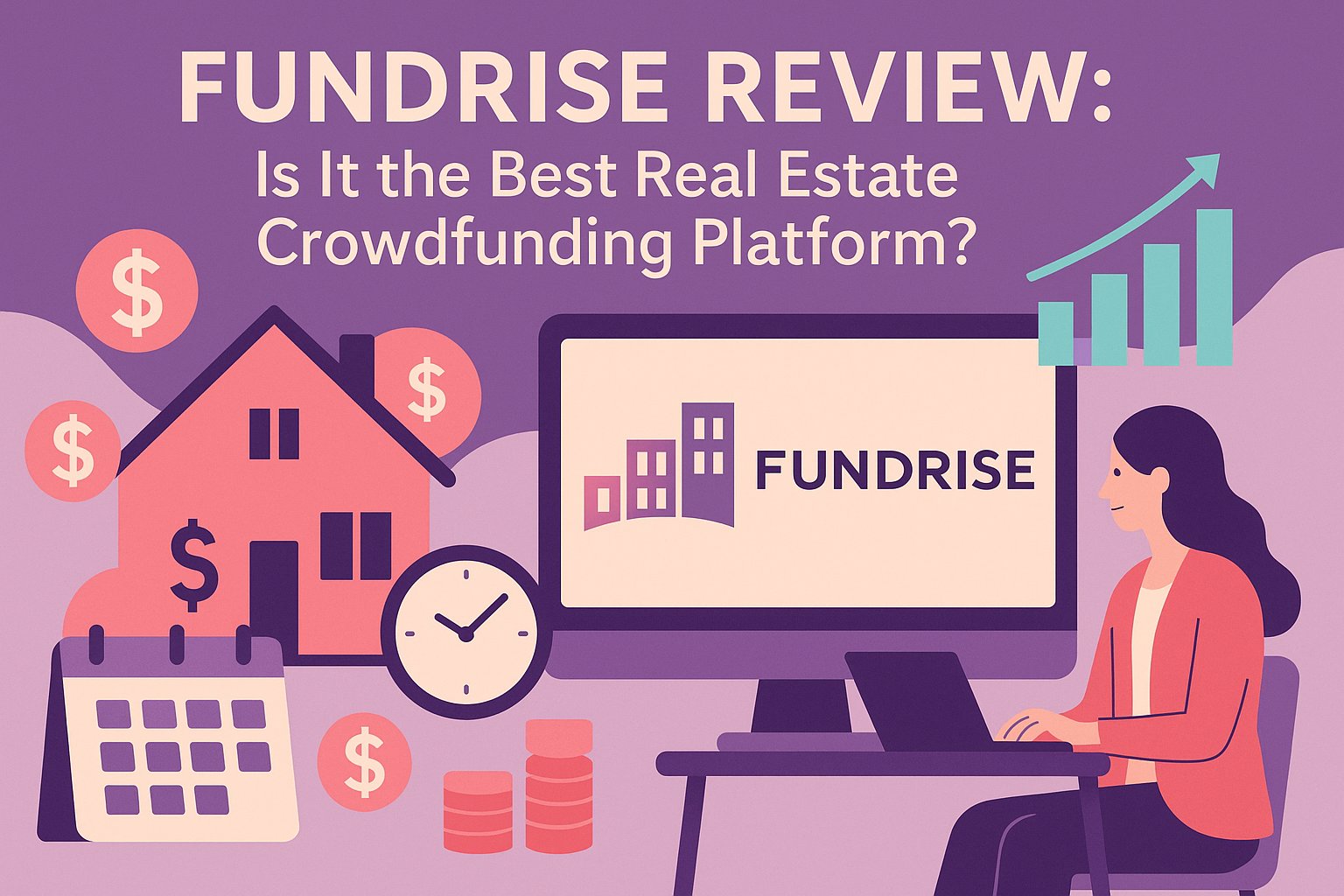Understanding RealtyMogul’s Commitment to Security
For anyone considering online real estate crowdfunding, security and transparency are top priorities. After all, you’re entrusting hard-earned capital to a digital platform in exchange for the promise of passive income and long-term growth. RealtyMogul, a notable player in the space, has garnered attention for its suite of commercial and residential offerings. But is it truly safe? In this deep dive, we’ll examine the various layers of security RealtyMogul employs—ranging from data protection protocols to investor vetting processes—and assess how transparent the platform remains throughout each investment’s lifecycle. By the end, you’ll have a clearer picture of how RealtyMogul strives to safeguard both your personal information and your capital, and whether it aligns with your standards for reliability and openness.
Fortifying Data Protection and Cybersecurity
One of the foundational elements of any online investing platform is its ability to shield sensitive information from prying eyes. RealtyMogul leverages industry-leading encryption protocols to secure data both in transit and at rest. This begins with SSL/TLS encryption for all web traffic, ensuring that personal identifiers—such as Social Security numbers used for identity verification—are scrambled as they travel between your browser and RealtyMogul’s servers. On the back end, the platform stores data in hardened, SOC 2–compliant data centers that undergo regular penetration testing. These third-party assessments simulate real-world hacking scenarios, identifying potential vulnerabilities before malicious actors can exploit them.
Beyond encryption, RealtyMogul implements robust access controls and continuous monitoring. Multi-factor authentication (MFA) is available for user accounts, requiring not only a password but also a one-time code sent via SMS or generated through an authenticator app. This additional layer makes it exponentially harder for unauthorized users to gain entry, even if a password is compromised. Behind the scenes, RealtyMogul’s security operations center (SOC) maintains 24/7 surveillance of network activity, flagging anomalous login attempts or unusual data requests. If suspicious behavior is detected—such as a login from an unrecognized device in a different geographic region—the system can automatically lock the account and prompt further verification steps.
Regulatory Compliance and Investor Protections
Security isn’t confined to digital safeguards alone; it also encompasses regulatory compliance and legal structures designed to protect investor capital. RealtyMogul operates under the regulatory umbrella of the U.S. Securities and Exchange Commission (SEC), which mandates stringent disclosure and reporting requirements for real estate crowdfunding platforms. By offering securities through Regulation D (for accredited investors) and Regulation A+ (for non-accredited investors), RealtyMogul must adhere to guidelines that prioritize full transparency. This includes filing offering circulars, audited financial statements, and ongoing quarterly reports for each investment vehicle. Investors can review these documents to understand underlying asset performance, fee structures, and sponsor track records.
In addition, RealtyMogul deploys a standard subscription agreement that clearly outlines the risks, fee schedules, and potential conflicts of interest. This uniform documentation ensures that each investor—regardless of background—receives the same level of disclosure. Importantly, the platform also conducts thorough KYC (Know Your Customer) and AML (Anti-Money Laundering) checks to verify investor identities. By partnering with third-party verification services, RealtyMogul confirms that investors are who they claim to be and that the funds they deploy are not derived from illicit activities. These regulatory guardrails work in tandem to safeguard both the platform’s integrity and investor capital, aligning RealtyMogul with established best practices in financial services.
Evaluating Transparency in Deal Underwriting
Another critical dimension of safety is the degree of transparency into how deals are vetted and underwritten. When you browse RealtyMogul’s marketplace, each offering is accompanied by a detailed investment summary that includes projected cash-on-cash returns, internal rate of return (IRR) estimates, and a breakdown of the capital stack. Sponsoring entities must submit extensive due diligence materials, including third-party appraisals, environmental assessments, property condition reports, and rent roll analyses. RealtyMogul’s internal underwriting team then scrutinizes these documents, cross-referencing them against local market data, historical occupancy rates, and comparable sale prices. The result is a multi-layered vetting process designed to filter out deals that do not meet the platform’s risk-adjusted return benchmarks.
To further enhance transparency, RealtyMogul publishes sponsor biographies and track records. Investors can examine prior projects, review realized IRRs, and assess how sponsors handled challenges—such as construction delays or tenant turnover. This historical performance data helps investors gauge whether a sponsor’s underwriting assumptions are realistic and if their management style aligns with investor expectations. Unlike some opaque crowdfunding platforms that offer cursory summaries, RealtyMogul’s commitment to sharing in-depth underwriting reports fosters an environment where informed decisions are possible. The ability to see line-item budgets, pro forma cash flows, and sensitivity analyses empowers investors to evaluate downside scenarios, such as prolonged lease-up periods or interest-rate hikes.
Ongoing Reporting: Staying Informed After You Invest
Investment safety extends well beyond the initial deal structure; it also relies on consistent, transparent updates throughout the holding period. RealtyMogul acknowledges this by providing investors with quarterly performance reports that delve into operational metrics: occupancy rates, rental income, operating expenses, and capital improvement updates. These reports often include photographs of completed renovations, lease abstracts illustrating new tenant agreements, and third-party appraisals to capture valuation changes. By combining narrative commentary with quantitative data, RealtyMogul ensures that investors maintain line-of-sight into how their capital is performing in real time.
Additionally, the platform sends annual independent audited financial statements for each REIT and private placement deal. Independent auditors confirm that reported revenues, expenses, and distributions align with Generally Accepted Accounting Principles (GAAP). This layer of third-party validation is particularly important for complex vehicles, such as equity joint ventures, where multiple stakeholders contribute to property-level decision-making. In the event of unexpected developments— for instance, a significant drop in occupancy due to economic headwinds—RealtyMogul’s sponsors typically prepare supplemental “special reports,” alerting investors to revised forecasts or potential mitigation strategies. By maintaining open lines of communication and publishing both positive and negative developments, RealtyMogul cultivates investor trust and reduces the likelihood of surprises.
User Account Safety and Best Practices
Even with robust backend security, investors play a critical role in safeguarding their accounts. RealtyMogul encourages users to follow best practices, such as choosing unique, strong passwords and enabling multi-factor authentication. The platform also provides guidance on how to recognize phishing attempts: never click on suspicious links from unverified email addresses and always confirm that the website’s URL begins with “https://www.realtymogul.com.” If an investor suspects any unauthorized activity—such as unfamiliar wires or login attempts—RealtyMogul’s support team is reachable via phone, email, and live chat to promptly freeze accounts and initiate investigations.
Investors should also remain vigilant about email security. Since RealtyMogul sends account notifications, transaction confirmations, and quarterly report links via email, it’s wise to maintain up-to-date antivirus software and avoid using public Wi-Fi for sensitive financial transactions. Additionally, keeping personal devices’ operating systems and browsers updated ensures that known vulnerabilities are patched. RealtyMogul’s user agreement clearly outlines responsibilities for both the platform and its investors, emphasizing that while RealtyMogul implements industry-leading safeguards, maintaining personal cybersecurity hygiene is equally essential in preserving the integrity of your account.
Enhancing Safety Through Partnered Third-Party Services
Beyond its internal security measures, RealtyMogul augments its protections by partnering with specialized third-party service providers. For example, the platform’s payment processing is handled by a PCI DSS–compliant financial institution, safeguarding banking credentials during ACH transfers. Similarly, the third-party verification services used for KYC and AML checks restrict access to sensitive documents, ensuring that RWAs (Real World Assets) like bank statements and tax returns remain encrypted and accessible only to authorized personnel. This compartmentalization of duties reduces the risk associated with any single point of compromise.
Moreover, property management firms and construction partners engaged by RealtyMogul sponsors are typically required to adhere to standardized protocols for handling maintenance requests, tenant data, and on-site security. By imposing these guidelines, RealtyMogul helps mitigate operational risks that could have downstream impacts on investor returns. For instance, if a sponsor subcontracts an unvetted vendor to handle building renovations, quality issues or safety code violations could delay occupancy and diminish revenue streams. By establishing a network of vetted partners—ranging from legal counsel to environmental consultants—RealtyMogul strives to maintain a consistent level of quality control throughout the investment lifecycle.
Benchmarking Against Industry Security Standards
To fully gauge how RealtyMogul’s security and transparency stack up, it’s important to compare them against industry benchmarks. Leading real estate crowdfunding platforms typically adhere to SOC 2 or ISO 27001 standards, which require systematic risk assessments, policy documentation, and periodic third-party audits. RealtyMogul’s public statements indicate compliance with SOC 2 Type II requirements, meaning the platform’s internal controls have been tested over a sustained period. This is a significant marker: it confirms that security policies aren’t merely aspirational but are consistently enforced in day-to-day operations. In contrast, platforms lacking these certifications may rely on internal, unaudited processes, leaving small but potentially critical gaps in data protection.
From a transparency standpoint, the quality and depth of due diligence materials separate RealtyMogul from less rigorous competitors. Some crowdfunding sites offer only high-level overviews—such as projected IRRs and basic location data—without sharing line-item budgets or third-party appraisal results. By contrast, RealtyMogul provides comprehensive underwriting reports and sponsor financials, which align with best practices adopted by institutional investors. Additionally, the platform’s willingness to publish audit reports, legal disclosures, and detailed operating agreements underscores a commitment to openness that not all rivals match. For investors who prioritize a high degree of visibility into where every dollar goes, these attributes place RealtyMogul near the upper echelon of industry standards.
Recognizing Potential Limitations and Risks
While RealtyMogul’s security architecture and transparent approach inspire confidence, no platform is immune to all risks. Cyber threats evolve constantly, and a determined hacker may eventually discover novel attack vectors. Although SOC 2–level compliance significantly reduces that probability, it cannot eliminate it entirely. Investors should remember that even a perfect cybersecurity framework cannot safeguard against human error—such as inadvertently responding to a sophisticated phishing email or using an insecure device. For this reason, maintaining security on both ends—platform and user—is essential.
On the transparency front, investors must exercise critical thinking when reviewing underwriting reports and sponsor-promoted projections. While RealtyMogul requires sponsors to disclose potential conflicts of interest, fee structures, and conservative underwriting assumptions, markets can be unpredictable. Factors like sudden shifts in local employment, unexpected regulatory changes, or natural disasters can undermine even the most meticulously vetted deals. Transparent reporting helps you understand these risks, but it does not guarantee superior returns. By combining RealtyMogul’s disclosures with independent research—such as reviewing regional economic forecasts or analyzing comparable property sales—you can deepen your understanding of the deal’s risk profile.
Charting a Secure Path Forward as an Investor
Ultimately, the question “Is RealtyMogul safe?” depends on both the platform’s safeguards and your own diligence. RealtyMogul’s comprehensive encryption protocols, SOC 2 certification, and multi-layered underwriting processes establish a robust foundation. The platform’s commitment to ongoing quarterly reporting and third-party audits further enhances transparency, making it easier for investors to track performance and make informed decisions. That said, investors must pair these protections with prudent practices: enabling multi-factor authentication, scrutinizing sponsor track records, and retaining copies of all quarterly reports for their own records.
By staying proactive—monitoring for phishing attempts, maintaining up-to-date antivirus software, and regularly reviewing your RealtyMogul dashboard—you can minimize potential vulnerabilities on the user side. Simultaneously, leverage RealtyMogul’s rich library of educational resources to refine your understanding of what constitutes a strong underwriting package. As you grow more comfortable with the platform’s security and transparency standards, you can gradually expand your real estate portfolio, confident that you are partnering with a company that places a premium on protecting both your personal data and your investment capital.
In an era where digital platforms are prime targets for cyberattacks and investor trust is earned through openness, RealtyMogul stands as a compelling example of how to balance stringent security measures with deep transparency. While no system can promise absolute immunity from every threat, RealtyMogul’s layered defenses—coupled with SEC-mandated disclosures and third-party audits—provide a level of protection that meets or exceeds industry norms. By combining these platform-side safeguards with vigilant personal practices, you can navigate the world of real estate crowdfunding with greater peace of mind and focus on the long-term potential of your investments.




